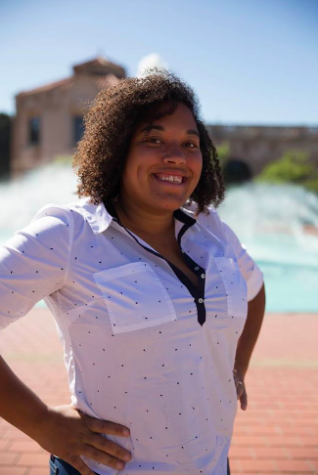Students who don’t identify with their birth or legal names will soon be able to have a preferred name printed on their diplomas from San Diego State.
Starting with the fall 2020 graduating class, students will have the option to choose between the legal and preferred name on their school records when they apply for graduation.
“I think it is important for the diploma to reflect how people identify,” said J. Luke Wood, the chief diversity officer at SDSU. “If you have a name that you are legally known by but a name that you prefer to go by, we think that’s important to be reflected so people have that option.
“Particularly for many of our transgender students, it’s really about acknowledging their identity.”
The change is part of a larger effort to make the campus more inclusive of transgender and non-binary students following the presentation of requests from students to campus administrators, Wood said.
“There was actually a group of students who came together and they wrote a proposal to us,” Wood said. “The proposal outlined a number of different changes that they want to see on campus, and we’re working on responding to what their concerns were.”
The university is also addressing another student concern by working to build computer systems that allow students to identify as non-binary across the multiple platforms the university uses, Wood said.
With the diploma option, SDSU will join other California State University campuses — such as CSU Los Angeles and CSU Northridge — that have already started a preferred name option for diplomas.
“If it’s something that our students want, other CSUs are already doing it, and (the Registrar’s Office) has the mechanism to make it happen, it seems like it’s a very important win for our students,” Wood said.
Once it is started, the diploma name choice will be an addition to previously-instated preferred name options for BlackBoard, RedID cards and rosters for both classrooms and grades.
Journalism freshman Juniper Perkins said they started using a different name a few years ago, but once they started attending SDSU, they began solely introducing themselves with the new name.
Perkins said they appreciate the campus’ inclusion efforts, as some students can’t always afford to go through the legal process to formally change their name.
“I think it’s important because a lot of people might not be in a position where they can afford a legal name change,” Perkins said. “Their legal name change might not agree with who they really are, whether it’s their gender identity or just it’s a nickname that they prefer.”
Someone who wants to legally change their name or gender in San Diego County is generally charged $435 in civil case fees, according to the Superior Court of California website.
Those receiving public benefits, who earn under $1,301.05 per month or who the court deems unable to afford the fees plus household costs may qualify for a fee waiver, according to the California Courts website.
Aside from the financial burden of court fees for name changes, there can be an emotional burden for transgender and non-binary students when they see reminders of their birth names.
Perkins said when they see their birth name on some campus portals and documents, it can have a negative effect on them throughout the day.
“It makes me very uncomfortable to hear that name ever or even see it written down,” Juniper said. “It kind of ruins the rest of my day after and it takes a lot to get me back to the level of happy and content that I usually am at before I have heard or had to read it.”
Until the option for diplomas is available next fall, students can change their preferred names or gender designations by submitting request forms to the Office of the Registrar. The preferred name will be seen on WebPortal class and grade rosters, BlackBoard, RedID cards, as well as in the Center for Student Rights and Responsibilities and Student Life and Leadership.








